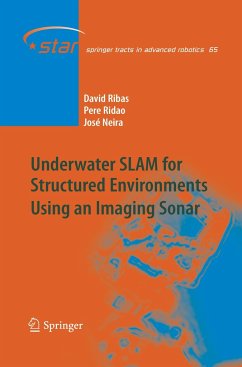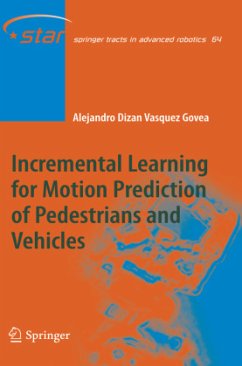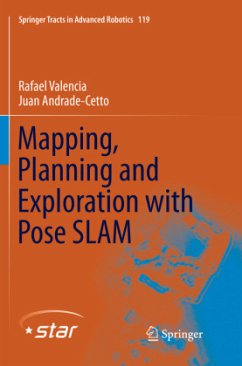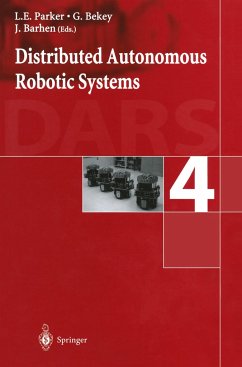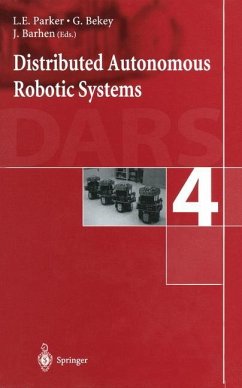
Autonomous Navigation in Dynamic Environments

PAYBACK Punkte
38 °P sammeln!
At the dawn of the new millennium, robotics is undergoing a major transformation in scope and dimension. From a largely dominant industrial focus, robotics is rapidly expanding into the challenges of unstructured environments. Interacting with, assi- ing, serving, and exploring with humans, the emerging robots will increasingly touch people and their lives. The goal of the new series of Springer Tracts in Advanced Robotics (STAR) is to bring, in a timely fashion, the latest advances and developments in robotics on the basis of their significance and quality. It is our hope that the wider disse...
At the dawn of the new millennium, robotics is undergoing a major transformation in scope and dimension. From a largely dominant industrial focus, robotics is rapidly expanding into the challenges of unstructured environments. Interacting with, assi- ing, serving, and exploring with humans, the emerging robots will increasingly touch people and their lives. The goal of the new series of Springer Tracts in Advanced Robotics (STAR) is to bring, in a timely fashion, the latest advances and developments in robotics on the basis of their significance and quality. It is our hope that the wider dissemination of research developments will stimulate more exchanges and collaborations among the research community and contribute to further advancement of this rapidly growing field. The collection edited by Christian Laugier and Raja Chatila is the third one in the series on mapping and navigation, and is focused on the problem of autonomous navigation in dynamic environments. The state of the art is surveyed, a number of challenging technical aspects are discussed and upcoming technologies are addressed. The ambitious goal is to lay down the foundation for a broad class of robot m- ping and navigation methodologies for indoors, outdoors, and even exploratory m- sions. Future service robots and intelligent vehicles are waiting for effective solutions to such kind of problems.





